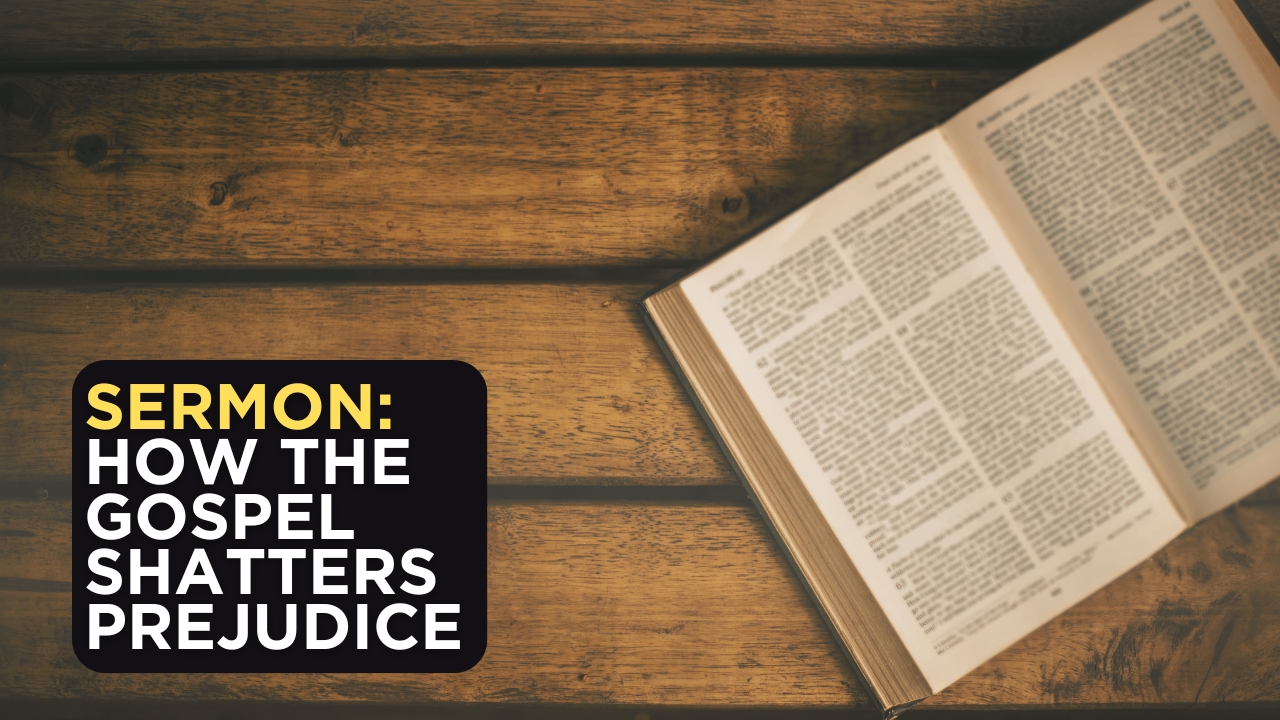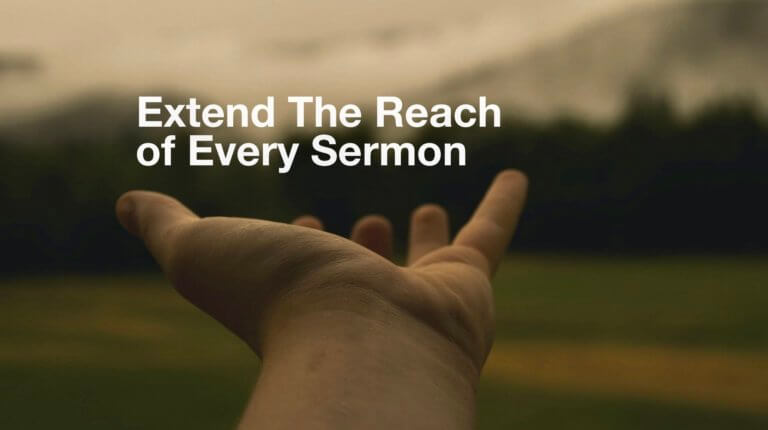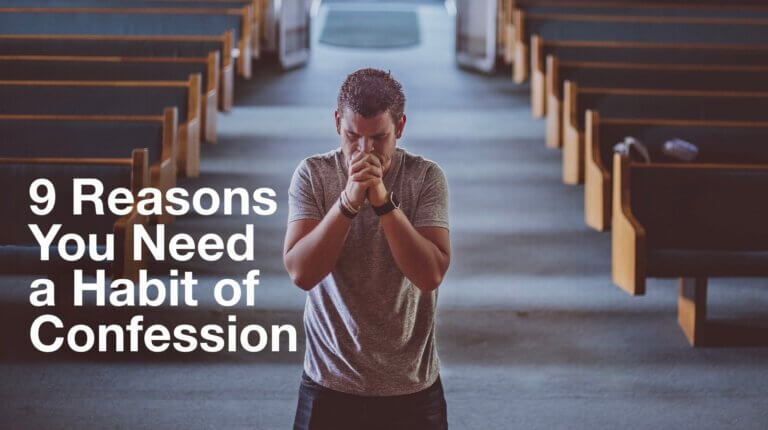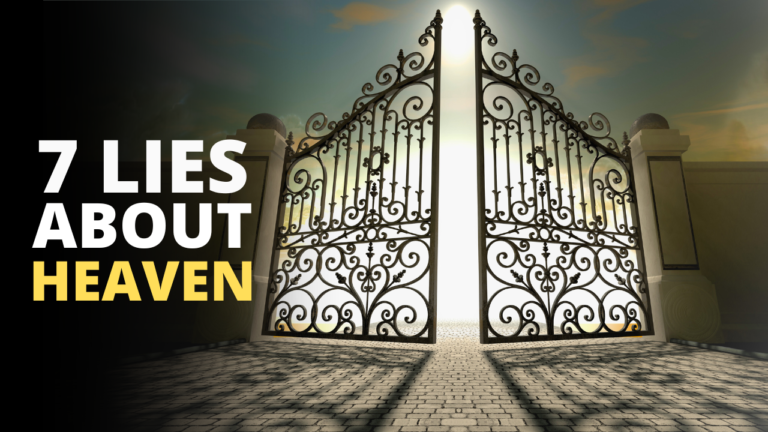How the Gospel Shatters Prejudice: Acts 10

Have you ever experienced prejudice? Has someone ever looked down on you because of something outside your control? Maybe it was because you were too young, too old, from another culture, wearing the wrong clothes, or from the wrong neighborhood.
Now, here’s a harder question: Have you ever done the same thing to somebody else? Have you ever pre-judged somebody based on something you didn’t like about them?
I have a confession: I’m prejudiced. I’ll admit it.
I’m prejudiced against anyone who is a Vikings fan. What’s wrong with you people? I’m one of those righteous and good Packer fans, as all good people are. And anyone who doesn’t think like me… well, bless your heart.
Now, I joke about that, but we are prejudiced about things like this in sometimes subtle and sometimes not-so-subtle ways. It could be a person’s job, their clothing, the color of their skin, their gender, their language, or their political affiliation…. I know. That one hurts a little because many of us do it.
Prejudice means to ‘pre-judge’ someone. You cast judgment on a person, condemning them as guilty of something based on some external factor before you even get to know them.
We judge people because they aren’t like all the good people like me who (fill in the blank). And we so quickly become self-righteous, judgmental hypocrites, don’t we? And it does not honor God.
The sinful human heart has a prejudice problem.
Over the last few weeks, we’ve been talking about the watershed moments or major turning points in the early church that we see in the book of Acts. This week, we are going to look at a surprising story of how God worked in miraculous ways to open the eyes of the church to see people once considered outsiders in a radically new way.
A Shocking Revelation – Acts 10
Today we are looking at Acts 10. So if you have a Bible with you, type or turn to Acts 10 and follow along with me.
Acts 10 is the longest narrative in the book of Acts. It spills into ch.11 and is mentioned again in ch.15. Why is that important? Because it signals that Luke, who wrote the Gospel of Luke and Acts, thought this was a very important story. It is so important that he dedicated a lot of ink to recording the story and even repeating the story in other places, because this was such a Watershed moment in the church.
If this was a movie, Acts 10 could be broken into three scenes.
In Scene 1, we are in Caesarea (Acts 10:1-8)
Caesarea is just up the coast on the Mediterranean Sea from where Tel Aviv is today. It was the center of Roman power and rule in the region. The name itself hints that it was not a Jewish area. Caesarea was Caesar’s area, named after Caesar Augustus. It was full of Roman architecture: a theater, an arena for gladiator games and chariot races, and places to worship Roman gods. It was Roman to the core.
Self-respecting Jews did not go to Caesarea by choice. And they absolutely never entered the house or shared a meal with unclean, gentile “dogs” (as they called them). And that is where the story begins.
1 At Caesarea there was a man named Cornelius, a centurion of what was known as the Italian Cohort, 2 a devout man who feared God with all his household, gave alms generously to the people, and prayed continually to God. (Acts 10:1-2 ESV)
So here is Cornelius, a Roman centurion, the commanding officer of 100 men. But he is not like most Romans. Cornelius feared God and didn’t just acknowledge him intellectually but showed his reverence for the Lord in generosity and devout prayer. He was not a full-fledged Jewish convert (meaning he didn’t practice all Jewish laws like circumcision), but he was a sincere man of faith who feared the Lord. And we see this in the next verse as Cornelius is engaged in one of his daily prayers at the customary time.
3 About the ninth hour of the day he saw clearly in a vision an angel of God come in and say to him, “Cornelius.” 4 And he stared at him in terror and said, “What is it, Lord?” And he said to him, “Your prayers and your alms have ascended as a memorial before God. 5 And now send men to Joppa and bring one Simon who is called Peter. 6 He is lodging with one Simon, a tanner, whose house is by the sea.” 7 When the angel who spoke to him had departed, he called two of his servants and a devout soldier from among those who attended him, 8 and having related everything to them, he sent them to Joppa. (Acts 10:3-8)
Now, here is what I find fascinating in this part of the story: God is pleased by the prayers and generosity of a gentile. That would be shocking to a first-century Jewish audience because this man was not fully Jewish. He didn’t become a full convert, but God still heard his prayers. Plus, he was a leader of the army that was oppressing the Jews. I would imagine that the Jews were praying for God to rid them of the Romans, not to bless them.
And that brings us to scene two.
In Scene 2, we are in Joppa (Acts 10:9-23)
Joppa, called Joffa today, is located on the Mediterranean coast in modern-day Tel Aviv. It’s only 34 miles south of Caesarea, which is roughly the distance from here to Casa Grande. You can get there in an hour in your car, but back then, it was about a day and a half journey on foot.
If Joppa sounds familiar, it’s probably because that is the town by the sea where Jonah gets on a boat to sail in the opposite direction of where God told him to go because he did not want to share God’s message with the gentile enemies of Israel. And now, we see Peter staying in Joppa and God is going to ask him to share the Gospel with a gentile centurion of the enemy of Israel.
9 The next day, as they were on their journey and approaching the city, Peter went up on the housetop about the sixth hour to pray. 10 And he became hungry and wanted something to eat, but while they were preparing it, he fell into a trance 11 and saw the heavens opened and something like a great sheet descending, being let down by its four corners upon the earth. 12 In it were all kinds of animals and reptiles and birds of the air. 13 And there came a voice to him: “Rise, Peter; kill and eat.” 14 But Peter said, “By no means, Lord; for I have never eaten anything that is common or unclean.” (Acts 10:9-13)
Peter must have thought this was a test. I cannot overstate how much Jewish dietary restrictions are a hallmark of their culture. Jews would only eat clean animals. They would never settle for an unclean animal. That was considered a great sin. So when Peter sees this vision of all kinds of unclean animals descending, and he is told to eat them. He responds as any good Jewish man would. No way! I have never eaten anything unclean, and I never will! Peter would rather starve than violate God’s law.
But God is persistent.
15 And the voice came to him again a second time, “What God has made clean, do not call common.” 16 This happened three times, and the thing was taken up at once to heaven. 17 Now while Peter was inwardly perplexed as to what the vision that he had seen might mean, behold, the men who were sent by Cornelius, having made inquiry for Simon’s house, stood at the gate 18 and called out to ask whether Simon who was called Peter was lodging there. 19 And while Peter was pondering the vision, the Spirit said to him, “Behold, three men are looking for you. 20 Rise and go down and accompany them without hesitation, for I have sent them.” 21 And Peter went down to the men and said, “I am the one you are looking for. What is the reason for your coming?” 22 And they said, “Cornelius, a centurion, an upright and God-fearing man, who is well spoken of by the whole Jewish nation, was directed by a holy angel to send for you to come to his house and to hear what you have to say.” 23 So he invited them in to be his guests. The next day he rose and went away with them, and some of the brothers from Joppa accompanied him. (Acts 10:15-23)
Peter is smart enough to know that this is no coincidence. He has a confusing vision about God making things that are unclean clean. As he is pondering what this means, a bunch of unclean gentiles show up, saying they were sent by an angel to bring Peter to the unclean gentile region of Caesarea.
Now, I don’t believe in coincidences. This was a divine appointment. And Peter needed this revelation because, without it, I doubt he would have ever stepped foot inside a gentile’s home.
So Peter goes with them, and that leads us to the third scene.
In Scene 3, we are back in Caesarea (Acts 10:24-48)
Peter and six of his Christian brothers travel with the Gentiles to meet Cornelius. And it’s important that they go with Peter, because he has witnesses to what is about to happen that nobody would believe.
24 And on the following day they entered Caesarea. Cornelius was expecting them and had called together his relatives and close friends. 25 When Peter entered, Cornelius met him and fell down at his feet and worshiped him. 26 But Peter lifted him up, saying, “Stand up; I too am a man.” 27 And as he talked with him, he went in and found many persons gathered. 28 And he said to them, “You yourselves know how unlawful it is for a Jew to associate with or to visit anyone of another nation, but God has shown me that I should not call any person common or unclean. 29 So when I was sent for, I came without objection. I ask then why you sent for me.” (Acts 10:24-29)
Peter says I would never have visited a gentile before, but God spoke to me and said I shouldn’t call any person unclean that he can make clean. So Peter realized his vision wasn’t just about food but also about people. God was going to redeem Gentiles as well as Jews.
Now, there is a debate about whether Acts 10 is about overruling dietary laws or just laws about Gentiles. I believe it is both.
Jesus said he did not come to abolish the law but to fulfill it (Matt 5:17). Why were Jews commanded not to eat certain animals? It is because God had set them apart from all the other nations as his holy and chosen people. And why weren’t Jews by law supposed to marry or closely associate with Gentiles? It is because God had set them apart from all other nations as his holy and chosen people.
The dietary restrictions and the restrictions for marrying gentiles are linked. Just look at Leviticus 20:24-26:
24 I am the LORD your God, who has separated you from the peoples. 25 You shall therefore separate the clean beast from the unclean, and the unclean bird from the clean. You shall not make yourselves detestable by beast or by bird or by anything with which the ground crawls, which I have set apart for you to hold unclean. 26 You shall be holy to me, for I the LORD am holy and have separated you from the peoples, that you should be mine.
So why don’t Christians today worry about all of the dietary restrictions and other laws in the book of Leviticus about ceremonial washing, animal sacrifice, how to trim our beards, or wearing clothes of multiple fibers? Because Christ fulfilled the law!
Christ is our perfect sacrifice, so we don’t need to offer lesser sacrifices. Christ has perfectly washed us clean from the stain of sin, so we don’t need to practice imperfect ceremonial washings. Christ has made us who were unclean to be clean.
Christ is the great equalizer. All who come to him with a humble and repentant heart of faith are welcomed with open arms. All of these Old Testament laws were signs and symbols of Christ who would make all who come to him holy and set apart forever. Christ fulfilled the law perfectly, which we could never have done. This is what Peter is learning.
As the story continues in the next few verses, Cornelius retells what the angel told him as he was praying.
God had prepared Cornelius’ heart, and now Peter has a captive audience. So in verse 34, Peter gives them the Gospel.
34 So Peter opened his mouth and said: “Truly I understand that God shows no partiality, 35 but in every nation anyone who fears him and does what is right is acceptable to him. 36 As for the word that he sent to Israel, preaching good news of peace through Jesus Christ (he is Lord of all), 37 you yourselves know what happened throughout all Judea, beginning from Galilee after the baptism that John proclaimed: 38 how God anointed Jesus of Nazareth with the Holy Spirit and with power. He went about doing good and healing all who were oppressed by the devil, for God was with him. 39 And we are witnesses of all that he did both in the country of the Jews and in Jerusalem. They put him to death by hanging him on a tree, 40 but God raised him on the third day and made him to appear, 41 not to all the people but to us who had been chosen by God as witnesses, who ate and drank with him after he rose from the dead. 42 And he commanded us to preach to the people and to testify that he is the one appointed by God to be judge of the living and the dead. 43 To him all the prophets bear witness that everyone who believes in him receives forgiveness of sins through his name.” (Acts 10:34-43)
And there it is. Jesus died on the cross for your sins, he conquered death and rose on the third day. One day he will judge the living and the dead, and all who believe in him will receive forgiveness of sins in Jesus’ name. That’s the Gospel.
And then something incredible happens to undeniably prove that God has also saved these Gentile believers.
44 While Peter was still saying these things, the Holy Spirit fell on all who heard the word. 45 And the believers from among the circumcised who had come with Peter were amazed, because the gift of the Holy Spirit was poured out even on the Gentiles. 46 For they were hearing them speaking in tongues and extolling God. Then Peter declared, 47 “Can anyone withhold water for baptizing these people, who have received the Holy Spirit just as we have?” 48 And he commanded them to be baptized in the name of Jesus Christ. (Acts 10:44-48)
And this is the entire point of this long story in Acts 10: The Gospel shatters prejudice. Jesus saves all who believe. It’s not just Jews. It’s all people. Jesus breaks the dividing wall of prejudice.
Cornelius, as an uncircumcised Gentile, would have never been allowed inside the inner temple courts. He would have been barred to the outer Gentile court. Proceeding any further into the temple could be punishable by death. But Christ tore the veil. When he died, the veil was torn in the innermost part of the temple (the Holy of Holies). Now, the temple was no longer the focus because all who believed in Christ, Jew or Gentile, had the presence of God in them. They were the temple of the living God. Christ was in them, and they were in Christ. We have the Holy Spirit in us.
Peter, a passionate and zealous Jewish man, had to be corrected in his thinking that Jesus came only for the Jews. God used this vision and the sign of the Holy Spirit coming to Gentiles to open Peter’s eyes and prove that salvation was for the whole world.
The Gospel Shatters Prejudice
Here is the point: The Gospel shatters prejudice. Jesus saves all who believe. So don’t you dare let your prejudice hinder the gospel. Prejudice is ugly, but it’s even uglier in the church.
And so here is my big question for you: Who are you tempted to look at with prejudice? Like they are unclean? What type of person fills you with anger or disgust that they are not worthy?
The early church had to overcome habitual prejudice between Jews and Gentiles. It created all kinds of problems and schisms in the early church. You can read about it in just about every book from Acts onward. But this was a watershed moment, a turning point in the church where God revealed that he has no partiality. All who believe and trust in him are welcomed into his family.
But we still wrestle with these habitual prejudices today. I know we do. I do.
Maybe you judge somebody by their looks. It could be the color of their skin, color of their hair, the way they dress, or their tattoos, that they are too young or too old. Whatever it is, stop. Don’t look at them as anything less than Jesus sees. He goes after their heart, not their appearance.
Maybe you judge somebody by their beliefs. It could be they have a different political view than you. It could be that they have a different ethical view than you do. It could be that they have a different religious view than you do. Whatever it is, you have to overcome this sinful desire to write them off as irredeemable because Jesus redeemed even the most deplorable people.
Maybe you judge somebody by their status. It could be that you look down on them because they are poor, they are too rich, they never had kids, or had too many kids, they never got married, or had too many marriages. Whatever it is, set aside your prejudice and follow Jesus.
The Gospel is a call to lay aside any prejudice against another person. Every single person you lock eyes with is a human being like you who is created in the image of God. They have inherent dignity, value, and worth. No matter how wretched or deplorable their sins may be, nobody is too far gone that God cannot save them. God’s arms are not too short that he cannot reach anyone on this planet. And it just may be that he is calling you today to be like Peter, who, against everything he had ever been taught, set aside his prejudice toward Gentiles and saw that God could pour out the Holy Spirit even on them, his enemy, a Roman centurion who was a leader in the army that crucified Jesus, and was oppressing the Jewish people. The same Roman government that would one day also crucify Peter.
This doesn’t mean that we still don’t live holy lives pleasing to God. It doesn’t mean that we don’t love people enough to address their sins and call them to repentance. But it means that we don’t write them off as worthless, irredeemable, pieces of trash that we wish we could be rid of forever.
The Gospel shatters prejudice. Jesus saves all who believe.
May we be a church that is truly welcoming to all people. That no matter a person’s spiritual, physical, financial, relational, mental, or political condition that we will leave final judgment to God, and call all people to repent and follow Christ.
There is no room in Christ’s church for treating anyone differently based on race, class, gender, age, disability, disease, nationality, career, or political party.
So, if you are a Christian, do you treat some other type of person with prejudice? Admit it, repent, and live more consistent with the Gospel.
And if you are not a Christian, know that you cannot out-sin the grace of God. It doesn’t matter who you are, what you’ve done, or what’s happened to you. If you believe and trust in him, Jesus will welcome you with open arms, and so will this church. The good news is for you today.







Praise the LORD! Thank you for sharing this powerful sermon!
You’re welcome. I’m glad you enjoyed it.
Thank you so much i am from Zimbabwe and i work with inmates preaching and counselling .
Thank you so much i have used your sermon to them today. They loved it
Sorry i did not ask for permission but they listened to it and enjoyed. I think this is a very good idea continue sending more.
We live in a third world country economically please do not let us live in a third world country spiritually
Thank you, Stanley. That’s great! I’m so glad to hear that the inmates found it helpful. I do not mind you sharing any of my teaching. I’m just amazed to hear how God is using it beyond what I imagined.
encouraging